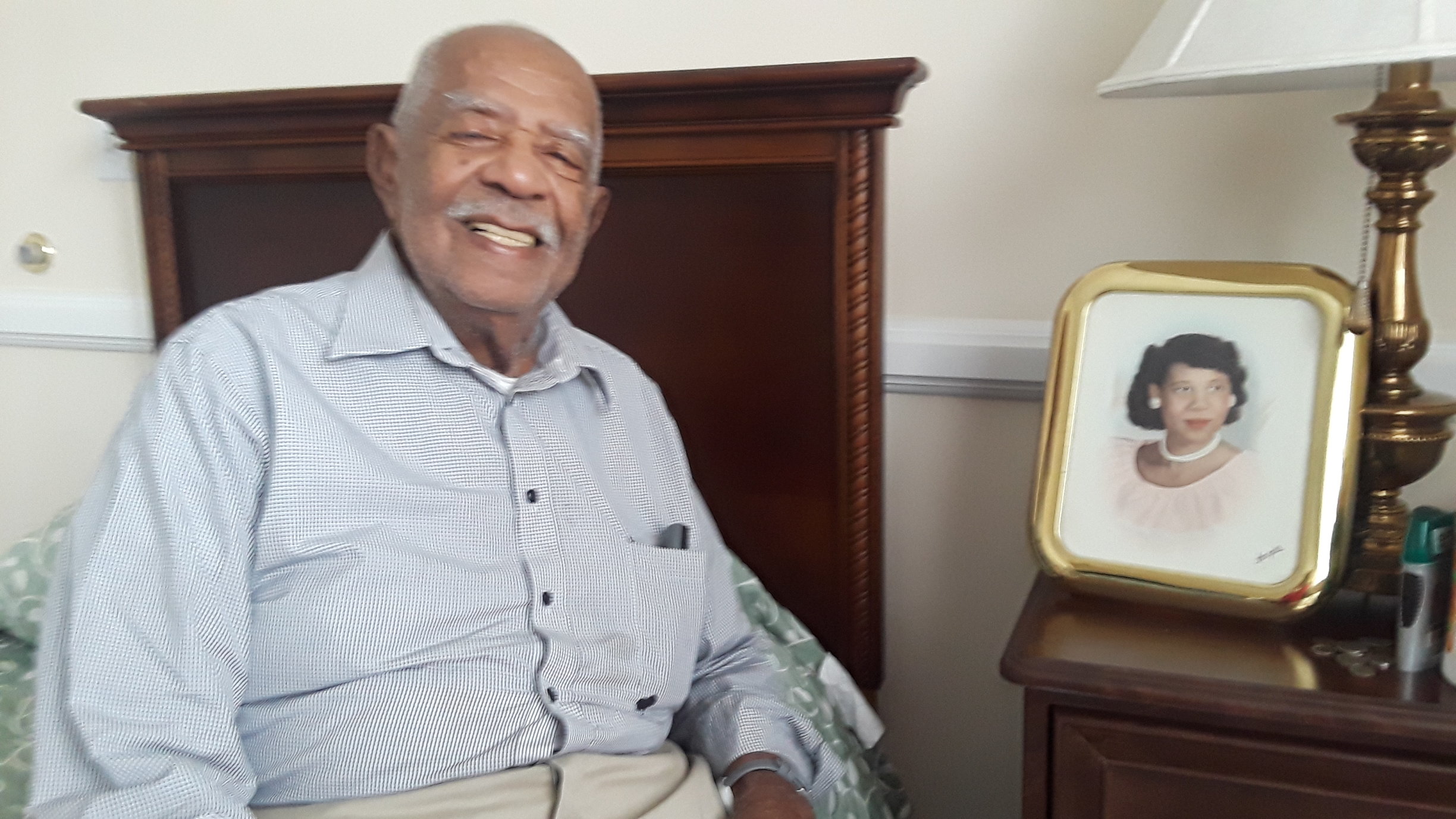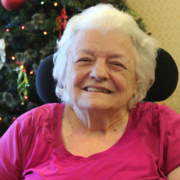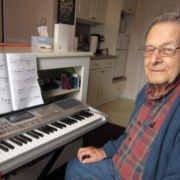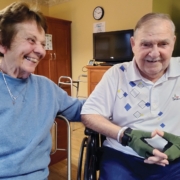Homeland resident Clyde Johnson recalls a life of hard work and service

Personal Care resident Clyde Johnson
It wasn’t always easy for Clyde Johnson, but after a lifetime of service to community, church, and country, he is happy to be at Homeland Center.
“They treat me just like a king,” he says. “I can’t even describe it.”
Clyde, the fourth of 11 children, grew up in Reedsville, North Carolina, in the tobacco-growing country near the Virginia border. His parents were sharecroppers, obliged to give half of everything they planted to the landowner.
His grandfather owned his own land and may have been a slave before Emancipation, but Clyde doesn’t know for sure. That grandfather, who used to give Clyde piggyback rides, died from a crash at a county fair auto race.
Between his father’s meager earnings and a couple of dollars his mother made doing laundry for the local white people, “it was rough,” Clyde says. Flour, sugar, shortening and other staples from the Red Cross helped the family survive. So did a cow they kept for milk and butter – when the cow cooperated.
“The cow would get mad and stick her foot in the bucket,” Clyde says. “She would do it on purpose.”
Every Sunday, the family would walk three miles to church, where Clyde’s father taught Sunday school. Black children couldn’t enroll at Clyde’s local high school, so his cousin – a schoolteacher – helped him enroll in a high school in a nearby town.
Later, he drove a school bus, and that’s how he met his “sweet Cecilia.” Sometimes, his passengers would complain because he would get off the bus to walk her from the bus stop the half-mile to her home.
After he graduated from high school, Clyde was determined to leave sharecropping behind. With World War II raging, he joined the Army and initially served at Fort Bragg before transferring to Fort Knox, Kentucky, where he helped guard the nation’s gold supply.
Following his discharge from the Army, he and Cecilia married and traveled around North Carolina, New Jersey and other states. For a time, they lived with Cecilia’s family after she became pregnant with the first of their two sons.
Clyde used the GI Bill benefits to learn bricklaying at night school and began working for contractors in Pennsylvania and the Washington, D.C., area.
Eventually, they settled in Bressler, where Clyde built the family home. He was active in his church, serving as treasurer and singing in the gospel choir.
Singing was always a big part of Clyde’s life. In his younger days in Reedsville, he was part of a gospel quartet called the Pearly Gates. For seven years, the group performed live on the radio every Sunday morning. They traveled to Chicago, South Carolina, New York, and Virginia to perform at churches.
Giving back is also important to Clyde, who is a 33rd degree Mason. His order – based in a former Steelton firehouse that he helped renovate – engages in a variety of community activities, such as preparing gift baskets for neighborhood residents at Christmas.
While Clyde was an active Mason, Cecelia rose to become Grand Worthy Matron of the Pennsylvania Order of the Eastern Star, a Masons’ auxiliary.
“I had to take her all over the state,” he jokes. “I was her chauffeur.”
Cecilia died in 2017, two weeks short of their 75th anniversary. At the hospital, before she died, Clyde held her hand and told her, “We have to make 75 years.”
“She squeezed my hand and smiled,” he said.
At Homeland, Clyde appreciates the excellent food and the attentive laundry for his sharp wardrobe, hanging neatly in the walk-in closet of his sunny suite.
“Everything they do here is very nice,” he says. “They really care about the people who live here.’’










